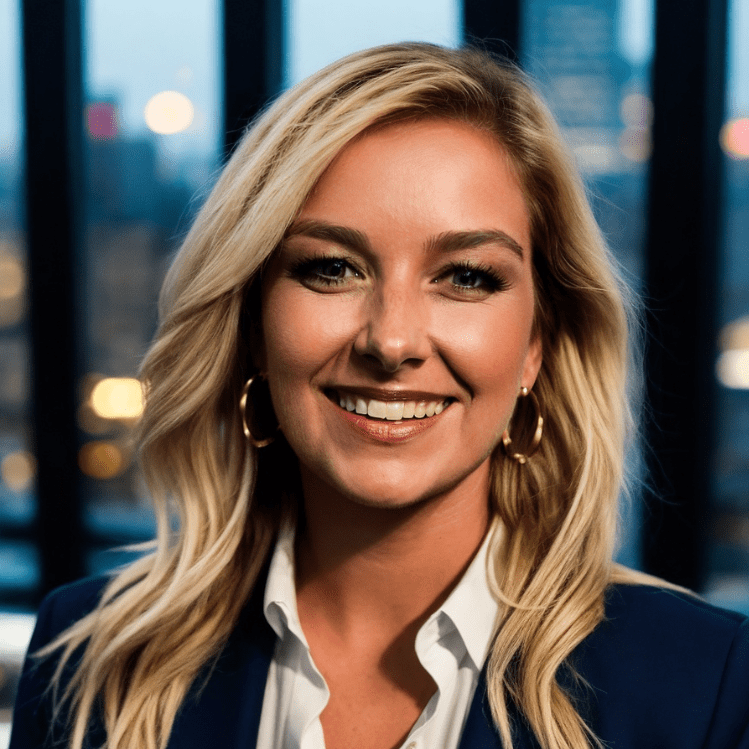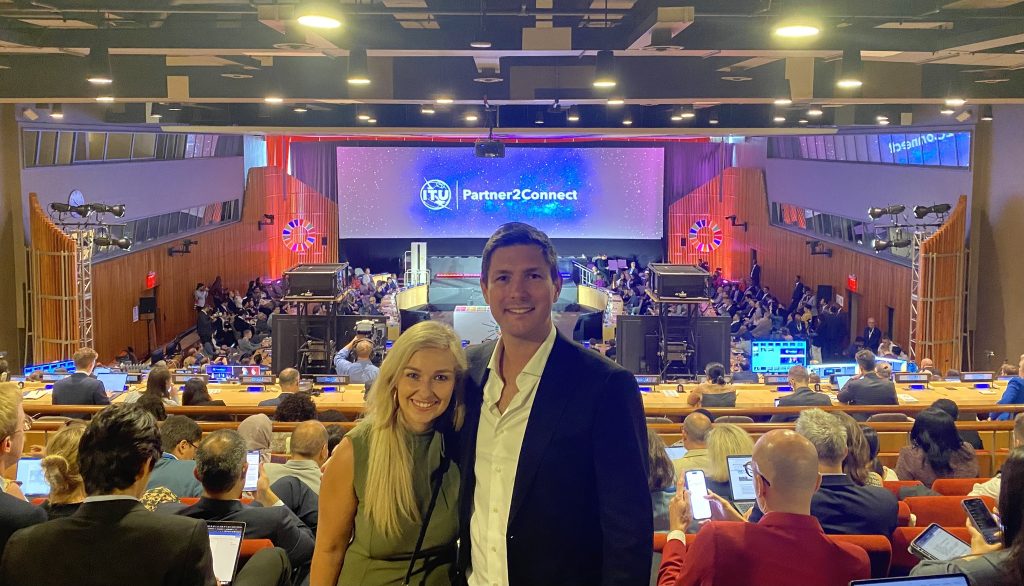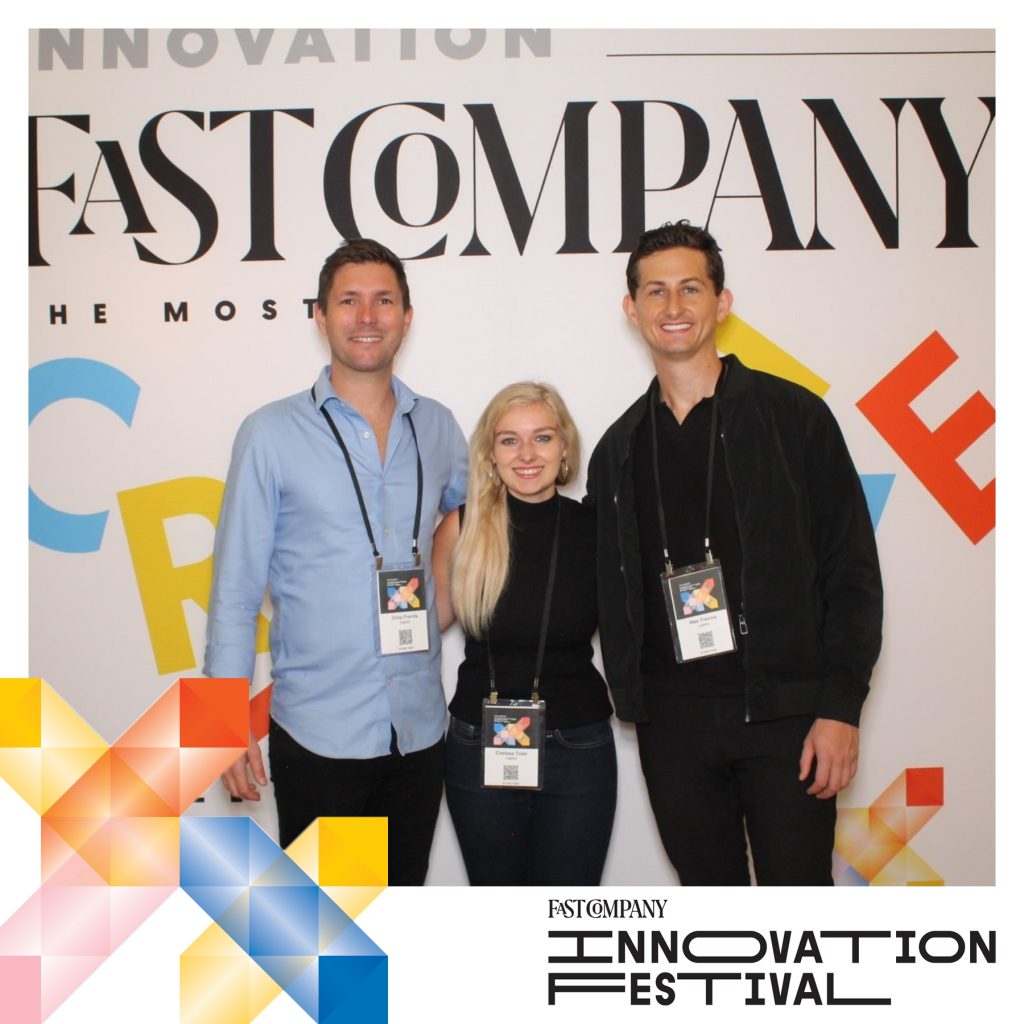
Driving Change: Chelsea Toler Champions Impact and Learning
Chelsea Toler is a dynamic force in the world of impact-driven change, blending her passion for education and technology to empower communities globally. As the Co-Founder and Chief Impact Officer of Logictry, she has dedicated her career to ensuring learners have access to the resources they need to succeed. A native of Austin, Texas, and a proud Longhorn, Chelsea graduated Phi Beta Kappa from the University of Texas before earning her PhD in Professional Adult and Community Education. With a focus on the impact sector, she has played a pivotal role in moving over $100 million toward initiatives aligned with the United Nations Sustainable Development Goals. Chelsea’s philanthropic efforts include raising over $20 million in 24 hours for 750 nonprofits as part of the Amplify Austin Day campaign. She also serves as the President of her family’s foundation, the KFG Foundation, which supports young leaders in impact and philanthropy. Recognised as a Profile in Power by Lifestyle Magazine, Chelsea leads groundbreaking initiatives, including the UN SDSN Youth Seed Fund and the global Next Gen campaign for Giving Tuesday. Her mission is to provide individuals with the tools, education, and platforms needed to reach their full potential and share their purpose with the world.
Can you share the journey that led you to Co-found Logictry and serve as its Chief Impact Officer? What inspired you to focus on impact movements and community education through technology?

I joined Logictry after learning the importance and model for scaling global impact movements through stewarding community education powered by innovative interactive technology over the last 10+ years.
I started my career as the first fundraising team member hired for an all-female team of 5 that raised 10+ Million Dollars in 24 hours for 750 nonprofit organisations. The Giving Day’s success would not have been possible without educating the community on the generosity and powering the donations with an innovative and new giving technology platform. This once-in-a-lifetime opportunity taught me the power of small teams being able to launch big movements with the right technology, community education, and cross-sector partnerships.
I went on to launch my family’s private foundation focused on next-gen education and investing in global youth initiatives. While leading as the President of the foundation we led Giving Tuesday’s first-ever Next Gen campaign globally during COVID-19 and helped to steward over 100+ Million of impact investment and philanthropic capital into organisations, funds, and companies in alignment with the United Nations Sustainable Development Goals. We also secured great partnerships with UN Global Schools and UN SDSN.
Over the years I have had the opportunity to learn the necessary skills, acquire the right networks, and build the right strategic approach to help launch intergenerational movements focused on creating a more just, sustainable, and generous world. When I met my Co-Founder and co-CEO, Chris Fronda, I found the perfect partner who had the unique background in building technology to better the world ahead of its time. Together we can help preserve the relevance of the current generation’s expertise and equip the next generation with the right education, community, tools, and interactive platforms necessary to navigate a new era of technological advancements with AI. We host the largest World Logic Day in 33+ countries in partnership with the UN to help celebrate the importance of the LOGIC MOVEMENT as the next wave of impact-focused on keeping human intelligence ahead of Artificial intelligence.
Your work has moved over $100 million towards impact initiatives aligned with the UN Sustainable Development Goals. How do you determine which projects or organisations to support, and what has been the most rewarding aspect of this work?
Early on in my philanthropic career, I learned the importance of valuing differing perspectives, engaging in collaborative approaches, and leveraging intergenerational models. As a result, I set up a 30-person next-gen advisory council surrounded by a 5,000 intergenerational community of funders and fellow next gens from around the world to source, provide feedback on, and help advocate for additional capital to be invested in organizations from a variety of sectors in alignment with the UN SDGs. We also held a designated spot on our council for a next-gen grassroots community leader and nonprofit executive director to ensure the council was not entirely comprised of just next-gen inheritors. This community of young leaders helped diligence and propose projects and worked together to help support great organisations, as well as great young leaders on the cutting edge of new solutions and social impact.
The most rewarding aspect of this work was learning that a collaborative community approach to designating capital proved much more successful than just allocating capital on my own. The council made recommendations to my family as well as their family members which allowed for older generations to support not only their children but a community or rising philanthropic leaders in their impact journeys. Younger generations were equipped with the skills necessary to make capital decisions and older generations learned about areas of impact they may never have engaged in like a mental health organization, Stronger than Stigma, led by Gabrielle Magid.
As someone deeply involved in lifelong learning, how do you believe technology can enhance the learning journey for adults and communities, particularly in the impact sector?
The future of learning is interactive dialogue, content, curriculum, and logic lead. As artificial intelligence improves, now more than ever is the time to ensure youth and adult education is grounded in logic, critical thinking, and question lead to ensure all generations are prepared to better flag misinformation and untrustworthy information.
Logictry is growing and scaling Logictry.com with our expert community to help ensure reliable digital information and toolsets are available for all to better leverage amidst the new era of artificial intelligence. AI is a great tool and will be used to solve complex problems and create solutions never seen before; however, we must also continue to create technologies and educate users on the importance of critical thinking, understanding the value of human intelligence, and logic as the key to creating global understanding and as a core safeguard for misinformation, AI hallucinations, or a lack of nuance in information resulting in human decision making.
Artificial intelligence + Human Intelligence = Logical Intelligence
Your role in Amplify Austin Day was instrumental in raising over $10 million in just 24 hours. What strategies did you employ to achieve this, and what advice would you give to others aiming to create such impactful fundraising events?
See Above
ADVICE:
ENGAGE THE NEXT GENERATION: I would advise others leading global fundraising initiatives to always engage the next generation as advocates, storytellers, and influencers for the world to better understand the initiative and the importance of investing in social impact. Younger donors may give smaller donations, but are great at helping spread the word and also if engaged early in the organization can be long-time supporters over time.
LEVERAGE CROSS SECTOR PARTNERSHIPS: We learned early that partnering with the corporate sector and helping them establish corporate social responsibility programs led to higher employee retention and a great impact on the community. I helped establish the I Live Here I Give Here Fund as a way to engage the family foundation sector that leveraged the day to increase donations to organisations already in their portfolios as corporations were matching employee donations just for the giving day. As an ecosystem, the various sectors helped scale generosity in our city and ensure the nonprofit sector received critical funding to better serve those in need.
The KFG Foundation, under your leadership, focuses on educating and empowering young leaders in philanthropy. What do you believe are the most critical skills or knowledge areas for young leaders in the impact sector today?

I have often been able to identify new waves of impact movements early. For example, I recognized the importance of the UN Sustainable Development Goals as an important framework not just in traditional philanthropy, but also for impact ventures early on and even held an Intergenerational Philanthropy Conference to help bring the philanthropic and venture capitalists together alongside UN leaders to demonstrate the importance of integrating UN SDGs as a great way to measure impact early on. Various impact funds now consider it best practices to measure the progress of impact through the UN SDG lens.
Today I see the LOGIC MOVEMENT as the next real wave of social impact and movement for young leaders in philanthropy as well as entrepreneurs to engage in. As AI gets stronger and stronger, global challenges like sustainability and mental health become increasingly prevalent, and political unrest increases there will be a core need to return to logic as the key for safeguarding AI, address how best to address global challenges, and increase understanding across party lines.
You were recognised as a Profile in Power by Lifestyle Magazine alongside Melinda Gates. What does this recognition mean to you, and how do you continue to leverage your platform to amplify the causes you are passionate about?
It is an incredible honour to be recognized amongst such meaningful humanitarians and legends of our times like Melinda Gates. The best way we can continue to help women and girls rise is by continuing to create, curate, and elevate their expertise, stories, and passions. My mentor and creator of Austin Women Magazine, Melinda Garvey shared with me her wisdom that “Women need to see it to be it.”
Whether it is through our Logic Circle Community, forums like World Logic Forum and World Logic Day, or on Logictry.com I look forward to spending the rest of my life working diligently to continue to uplift the women and girls driving a better world for everyone.
SPECIAL ANNOUNCEMENT:I look forward to sharing more at our upcoming private convening for the World Logic Forum in NYC in preparation for our attendance at the UN Summit of the Future and then more publicly around a special collaboration for women in media to highlight Logictry legends & moguls of the future.
In your experience, what are the key challenges that nonprofit organizations face when trying to scale their impact, and how can technology and community education help overcome these obstacles?
TECHNOLOGY:
Nonprofit organizations find it challenging to know what tools and technology are right for them. Additionally, as nonprofits scale the technology supporting the organization in the early days may need to change and/or adapt to the new needs of the organization. Investing in conducting necessary diligence on what is not only affordable initially, but also over time proves important.
Further working with experts many of which may exist in the organization’s donor community or on the board can be a good place to start. Nonprofits can also leverage Logictry’s Logictry.com to create assessments and interactive content to help discern what tools and technology might be best for the organisation.
COMMUNITY EDUCATION:
Many nonprofit organisations struggle with sustainability and retention of talent. The broader funder community needs to better understand that investing in operations may prove necessary for growing team members to scale impact efforts and to ensure talented leaders do not leave the nonprofit sector due to burnout, insufficient financial resources, and being dependent on volunteers rather than long-term team members.
How has your background in Professional Adult and Community Education influenced your approach to leadership and innovation in the impact sector?
Receiving my doctorate in Professional Adult and Community Education has provided me with a unique lens to discern how to best support and grow our global expert community and how to best partner with experts which we define as advisors, mentors, and thought leaders to create curated content that will help future generations consume and leverage trustworthy interactive content in their learning journeys.
Looking ahead, what are your goals for Logictry and your philanthropic efforts? How do you envision the future of impact-driven technology and community education evolving in the coming years?
Chris and I have partnered in business and life with the shared goal to establish a household global brand amidst the LOGIC MOVEMENT thereby creating the first Impact Technology Unicorn with LOGICTRY. We believe now is the time to focus our efforts on scaling the world’s wisdom to help keep human intelligence ahead of artificial intelligence.
We will accomplish this mission through our Interactive Content Platform, World Logic Forum convenings, Private Logic Deal Club, and Global Expert Community, the Logic Circle. As AI improves, the world needs a reminder of the importance and relevance of Human Intelligence grounded in logical education as a safeguard for all generations entering this new era of AI and unparalleled global challenges. Together we can make Logic POSSIBLE and ACCESSIBLE.
I can share that even writing one chapter for a book is a difficult task. It was a challenging process to ensure my contribution to the “CEO Habits of Success” book highlighted not only my successes and habits but also the hurdles. I had to overcome to achieve my goals. The key habits that drive me are morning meditation, my goal to always be learning and to lean into fears by pushing myself to try new things that scared me including emceeing a stage, launching a master class and running a spirit marathon.
What advice would you give to aspiring leaders and entrepreneurs looking to make an impact in the financial technology space, particularly in terms of innovation and strategic growth?
I am excited about the future of finance and the empowerment it will bring to consumers and business owners. My advice to leaders and entrepreneurs around the world is to attend more conferences, apply to speak, listen to podcasts, become a mentor, apply for awards and most importantly take risks as we only grow when we push ourselves. The ecosystem is changing rapidly and the time to drive change and strive for innovation is now.

APPLY TODAY
100 Top Global Women Entrepreneurs – Global Woman Magazine
Our Journey in 12 Months:
Our Journey in 12 Months – Global Woman Magazine
5 Things That Show Money is Not Evil:
5 Things to Show That Money Is Not Evil – Global Woman Magazine
Global Man Magazine Page:
Global Woman, Global Man: Socials:
Global Woman Magazine (@global_woman.magazine) • Instagram photos and videos






